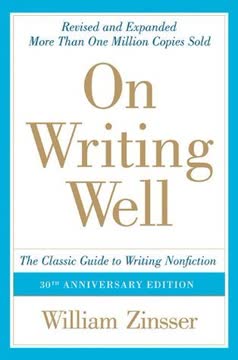重点摘要
1. 写作是一门需要不断练习和阅读的技艺
“如果你想成为一名作家,你必须做两件事:大量阅读和大量写作。我所知道的,没有其他捷径。”
贪婪地阅读。 有志成为作家的必须沉浸在文字的海洋中,阅读各种类型和风格的作品。这种接触有助于培养对语言、叙事技巧和优美散文节奏的敏感度。阅读还提供灵感,帮助作家识别好与坏的写作。
持续写作。 像任何技能一样,写作通过练习而提高。每天抽出时间写作,即使只是短时间。这种习惯建立了纪律性,帮助克服写作障碍。写任何东西——故事、散文、日记或练习。目标是让写作成为你日常生活中自然的一部分。
- 每年目标阅读70-80本书
- 每天至少写1,000字
- 尝试不同的类型和风格
2. 发展作家的工具箱:词汇、语法和风格
“把你的词汇放在工具箱的顶层,不要刻意去提高它。”
有机地建立词汇。 强大的词汇对于精确和生动的写作至关重要。然而,不要强行将大词汇塞进你的写作中。相反,通过阅读和日常经验自然地增长词汇。使用简单、清晰的语言来最好地表达你的想法。
掌握语法基础。 虽然你不需要成为语法专家,但理解语言的基本规则是至关重要的。这种知识使你能够构建清晰、有效的句子,并在必要时有意地打破规则以达到风格效果。
发展你自己的风格。 你作为作家的独特声音来自于词汇、语法选择和个人经验的结合。广泛阅读以接触不同的风格,但不要试图模仿他人。相反,专注于写作的清晰性和真实性。
- 避免使用词典寻找“花哨”的词汇
- 学习语法指南如Strunk & White的《风格的要素》
- 练习用不同的声音写作以找到你的自然风格
3. 关门写作,开门重写
“关门写作,开门重写。”
初稿:隐私和自由。 在写初稿时,将自己与外界影响和批评隔离。这种“关门”方法让你可以自由写作,不用自我审查或担心他人的意见。专注于将你的想法写在纸上,而不必担心完美。
修订:考虑你的读者。 一旦你有了完整的草稿,打开象征性的门,考虑读者将如何看待你的作品。这是精炼写作、澄清想法并确保信息有效传达的时机。为了改进你的作品,愿意做出重大改变。
- 为你的初稿设定目标(例如,每天1,000字)
- 初稿完成后至少放置六周再进行修订
- 在修订过程中寻求可信读者的反馈
4. 创建专用的写作空间和例行程序
“这个空间可以很简陋(可能应该是简陋的,正如我已经建议的那样),它真的只需要一件事:一扇你愿意关上的门。”
建立写作圣地。 指定一个特定的区域用于写作,无论是一个单独的房间、卧室的一角,还是咖啡店的某个座位。这个空间应无干扰,并与你的写作练习相关联。
发展一致的例行程序。 设定固定的写作时间并坚持下去。这种习惯训练你的大脑按命令创造,并帮助克服写作障碍。将写作视为一项工作,每天都要出现,无论是否有灵感或心情。
- 消除写作空间中的干扰(如电视、手机)
- 设定每日写作目标(时间或字数)
- 使用仪式来标志写作时间的开始(如煮咖啡、点蜡烛)
5. 在写作中讲真话,即使不舒服
“如果你打算尽可能真实地写作,你作为礼貌社会成员的日子已经屈指可数了。”
在作品中拥抱诚实。 真实的写作往往需要面对关于自己、他人和世界的不舒服的真相。不要回避困难的话题或情感。这种原始的诚实会引起读者的共鸣,并赋予你的写作力量和深度。
利用真实生活经验。 从自己的生活和观察中汲取灵感,创造真实的角色和情境。虽然你可能需要更改细节以保护隐私或法律原因,但你经历的情感真相可以为你的写作提供信息,使其更具相关性。
- 写作让你感到不舒服的话题
- 使用反映人们真实说话方式的对话,包括适当的脏话
- 准备好面对来自朋友、家人或社会的潜在反对
6. 掌握描述和对话的艺术
“描述始于作家的想象,但应在读者的脑海中完成。”
用文字描绘生动的画面。 有效的描述让读者看到、听到和感受到你所创造的世界。专注于具体、具体的细节,吸引感官。然而,避免过度描述——留给读者的想象空间。
打造真实的对话。 好的对话应该听起来自然,同时服务于故事。听人们真实的谈话方式,练习捕捉他们的节奏和模式。使用对话来揭示角色、推进情节和制造紧张。
- 使用比喻和隐喻使描述更生动
- 大声朗读对话以确保其听起来自然
- 避免过多的对话标签和副词(如“他愤怒地说”)
7. 理解主题和象征的重要性
“当你在写一个故事时,你是在给自己讲故事。当你重写时,你的主要任务是去掉所有不属于故事的东西。”
有机地发现你的主题。 不要从预定的信息或道德开始。相反,让主题在写作和修订过程中自然地浮现。通常,你的作品的深层含义只有在完成初稿后才会变得清晰。
谨慎使用象征。 象征可以为你的写作增加深度和共鸣,但它应该自然地从故事中产生。不要强行加入象征或使其过于明显——微妙的象征往往更有效,并且对读者更有回报。
- 完成初稿后问自己你的故事真正关于什么
- 寻找你写作中反复出现的主题或图像,可以作为象征
- 避免明确解释你的象征——相信读者会做出联系
8. 无情地修订和编辑,在第二稿中至少削减10%
“第二稿 = 第一稿 - 10%。祝你好运。”
在修订中无情。 你的初稿是为了把故事写下来;第二稿是为了让它更好。准备好删除任何不服务于故事的内容,即使你个人对其有感情。修订时目标是减少至少10%的字数。
专注于清晰和节奏。 在修订时,确保你的故事流畅,每个场景都有其目的。消除冗余,紧凑对话,删除不必要的描述。注意你的散文节奏,变换句子长度以提高可读性。
- 使用“搜索和摧毁”方法查找过度使用的词语和短语
- 大声朗读你的作品以捕捉尴尬的措辞和节奏问题
- 考虑删除整个场景或角色,如果它们不推进故事
9. 研究应增强而不是压倒你的故事
“记住那个词‘背景’。那是研究应该在的位置:尽可能远的背景和背景故事。”
做功课,但不要炫耀。 研究可以为你的写作增加真实性和深度,但不应压倒故事。使用足够的细节来创造一个可信的世界,而不让叙述因过多的信息而拖沓。
无缝地整合研究。 自然地将事实信息编织到你的故事中,通过对话、角色观察或简短的描述。避免长篇大论的讲解。
- 在写完初稿后进行研究,以避免分心
- 使用专家读者来捕捉专业领域的事实错误
- 记住,在小说中,讲故事胜过绝对准确性
10. 寻求可信读者的诚实反馈
“关门写作,开门重写。”
仔细选择你的首批读者。 选择一小群可信的人,他们可以提供诚实、建设性的反馈。这些读者应该熟悉你的类型,并能够清楚地表达你的写作中哪些有效,哪些无效。
以开放的心态听取批评。 对你的作品感到防御是自然的,但尽量客观地考虑反馈。寻找反馈中的模式——如果多个读者有同样的问题,它可能需要解决。
- 提供具体问题以引导读者的反馈
- 在完成完整草稿后再寻求意见
- 愿意根据深思熟虑的批评做出重大改变
11. 坚持不懈地面对拒绝和挫折
“到我十四岁时,墙上的钉子已经无法支撑钉在上面的拒绝信的重量。我用一个钉子代替了钉子,继续写作。”
期待拒绝并从中学习。 拒绝是写作过程中的正常部分。将其作为改进技艺的动力。继续提交你的作品,不要让挫折阻止你追求写作目标。
培养厚脸皮。 批评和拒绝可能是痛苦的,但它们对于作家的成长至关重要。学会将自我价值与作品的接受度分开。记住,即使是成功的作家也会面临拒绝和负面评论。
- 为提交和出版设定现实目标
- 记录拒绝并庆祝它们作为坚持的标志
- 将拒绝作为修订和改进作品的动力
12. 为了热爱而写作,而不是为了金钱
“我为了那种兴奋感而写。我为了纯粹的快乐而写。如果你能为了快乐而写,你就能永远写下去。”
找到内在的动力。 写作是因为你热爱这个过程,而不是因为你在追逐名利。这种激情将支撑你度过写作生涯中不可避免的挑战和失望。
享受创作过程。 专注于创作一个好故事或有效表达你的想法的满足感。这种创作的快乐会在你的写作中体现出来,并引起读者的共鸣。
- 写你想读的故事
- 尝试不同的类型和形式以保持你的激情
- 庆祝写作旅程中的小胜利和里程碑
最后更新日期:
FAQ
What's "On Writing: A Memoir of the Craft" about?
- Blend of memoir and guide: "On Writing" by Stephen King combines personal memoir with a writing guide, offering insights into King's life and career.
- Practical writing advice: The book provides practical tips on grammar, style, and the writing process, drawn from King's extensive experience.
- Inspiration for writers: It serves as a motivational tool for aspiring writers, emphasizing the importance of perseverance and passion in the craft.
Why should I read "On Writing: A Memoir of the Craft" by Stephen King?
- Learn from a master: Stephen King is a prolific and successful author, and his insights are invaluable for both new and experienced writers.
- Engaging storytelling: The book is written in King's engaging style, making it both informative and entertaining.
- Practical and motivational: It combines practical writing tips with motivational anecdotes, encouraging readers to pursue their writing dreams.
What are the key takeaways of "On Writing: A Memoir of the Craft"?
- Read and write regularly: King emphasizes the importance of reading widely and writing daily to improve one's craft.
- Simplicity and clarity: He advises using simple, clear language and avoiding unnecessary adverbs and passive voice.
- Honesty in storytelling: King stresses the importance of honesty in writing, urging writers to tell the truth in their stories.
What is Stephen King's writing process as described in "On Writing"?
- Daily writing routine: King writes every day, including holidays, to keep his characters and stories alive in his mind.
- First draft with the door closed: He writes the first draft for himself, without external opinions, allowing creative freedom.
- Revisions with the door open: After the first draft, King revises with feedback, refining the work for the audience.
How does Stephen King view the role of plot in writing?
- Plot is secondary: King believes that plot is not essential and can often feel artificial and labored.
- Focus on situation and characters: He prefers to start with a situation and let the characters drive the story.
- Stories as found objects: King views stories as pre-existing relics that the writer uncovers and transcribes.
What advice does Stephen King give about writing dialogue?
- Honesty is crucial: King emphasizes that dialogue should be honest and true to the characters.
- Avoid clichés: He advises against using clichéd phrases and encourages fresh, realistic dialogue.
- Dialogue reveals character: Good dialogue can convey a character's intelligence, honesty, and personality.
What does Stephen King say about the importance of reading for writers?
- Read a lot: King insists that reading is essential for writers to learn different styles and improve their craft.
- Exposure to various genres: Reading widely exposes writers to different genres and techniques.
- Reading as a learning tool: It helps writers understand what works and what doesn't in storytelling.
How does Stephen King suggest handling back story in writing?
- Keep it minimal: King advises keeping back story to a minimum to maintain the story's pace.
- Integrate it naturally: Back story should be integrated naturally into the narrative without overwhelming the reader.
- Focus on the present: He suggests focusing on the present story and only including back story that is essential.
What are some of the best quotes from "On Writing: A Memoir of the Craft" and what do they mean?
- "The adverb is not your friend." King advises against overusing adverbs, as they can weaken writing.
- "Books are a uniquely portable magic." This highlights the power of books to transport readers to different worlds.
- "The scariest moment is always just before you start." This emphasizes the fear and hesitation writers often feel before beginning a new project.
How does Stephen King view grammar and style in writing?
- Grammar as a tool: King sees grammar as a fundamental tool for clear communication.
- Style as personal expression: He encourages writers to develop their own style, reflecting their unique voice.
- Simplicity over complexity: King advocates for straightforward language to convey meaning effectively.
What advice does Stephen King give to aspiring writers in "On Writing"?
- Read widely and often: King stresses the importance of reading a variety of genres and authors.
- Write every day: He advises setting a specific word count goal to maintain discipline.
- Embrace rejection and keep going: King shares his own experiences with rejection and encourages perseverance.
What role does Stephen King's personal life play in "On Writing"?
- Memoir elements: The book includes memoir elements, sharing King's personal experiences and how they influenced his writing.
- Overcoming challenges: King candidly discusses his battles with addiction and how he overcame them.
- Family support: He highlights the importance of his family's support in his writing career.
评论
《写作:一部工艺回忆录》被广泛赞誉为一本对有志作家具有深刻见解和启发性的书。金结合了个人轶事和实用的写作建议,强调了广泛阅读、定期写作和磨练技艺的重要性。读者欣赏金的诚实、幽默和直截了当的写作过程讨论方式。书中涵盖了语法、讲故事技巧以及作者自己在面对拒绝和成功时的经历等主题。许多人认为这本书是金的作品爱好者和那些有兴趣提高写作技能的人的必读之作。
Similar Books
























